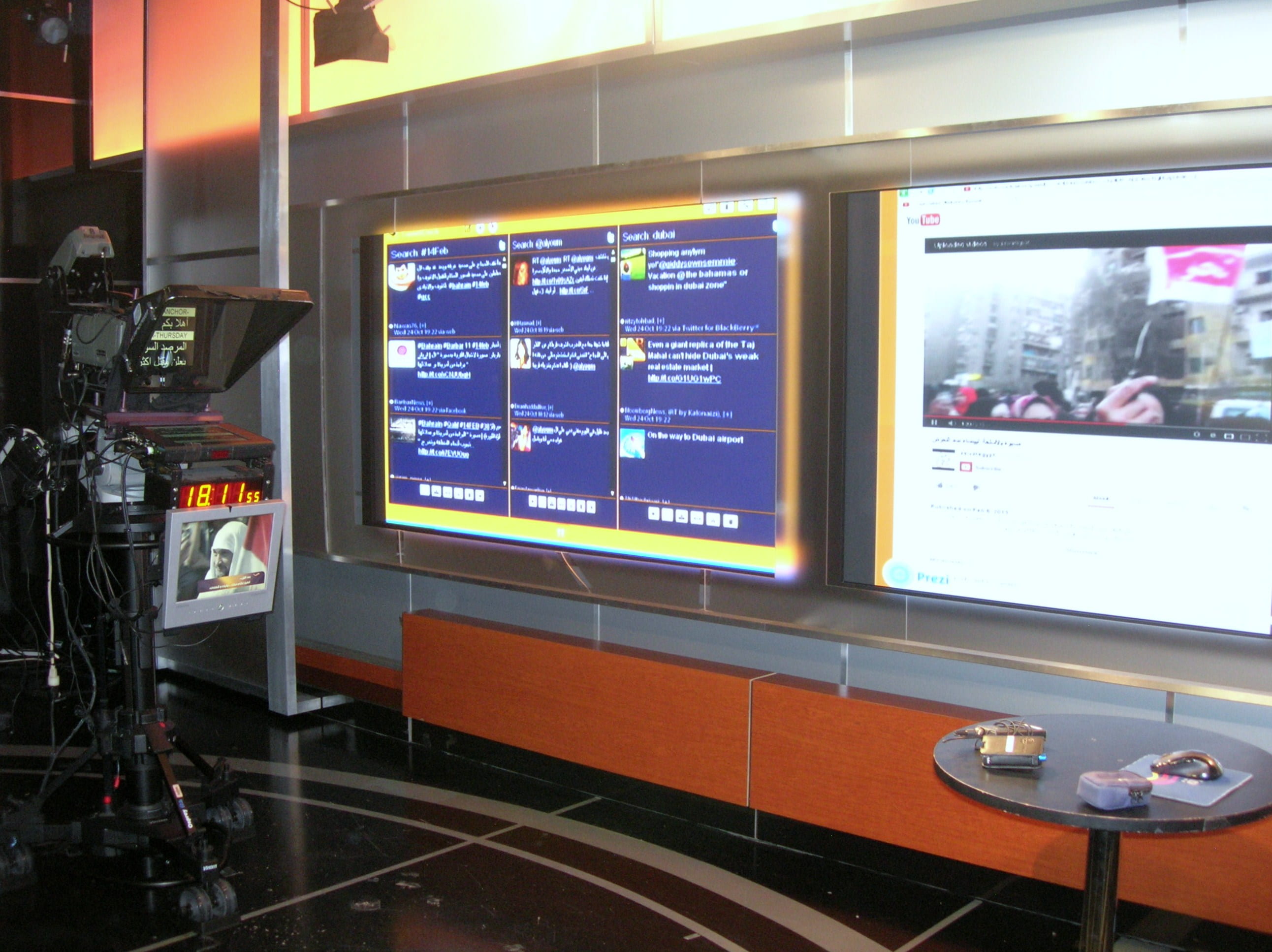WASHINGTON – The U.S. government’s international TV  broadcaster in the Middle East, Alhurra, celebrates its ninth anniversary on the air on Thursday with new initiatives to reach mobile devices.
broadcaster in the Middle East, Alhurra, celebrates its ninth anniversary on the air on Thursday with new initiatives to reach mobile devices.
First up, will be a new Alhurra app for Android-powered cell phones, according to Brian T. Conniff, President of Middle East Broadcasting, Alhurra’s parent company.
In an interview last week at Alhurra studios in northern Virginia, Coniff told me cell phones are key to reaching young people in the Middle East.
“You have to pay attention to the youth bulge in the Middle East,” he said, adding that the future of the region belong to the burgeoning numbers of young people.
“They use their cell phones for everything,” Conniff said. “They get SMS [messages], sports scores and news alerts.”
But the growth of smart phones has been uneven across the region.
“In the Gulf, you see a lot of smart phones and tablet,” he said. “In Saudi Arabia, penetration is very high – 2:1.” That means an average of two phones for every person, so some must have three or four.
“Blackberry has been the device of choice in the Middle East because of a focus on email,” he said, “but other smart phones are gaining now.”
Alhurra also integrates mobile devices and social networks into its television broadcasts, asking viewers to respond to the news with texts and Facebook messages, some of which are read on the air.
In the network’s flagship three-hour nightly magazine program, with anchors in Cairo, Dubai, Beirut and Baghdad, one correspondent in Washington has the sole assignment of providing regular live updates from Twitter feeds and Facebook posts, which are displayed on large video screens on the set (see photo to the right). And one story that generated a huge responde had nothing to do with changes in Arab governments.
“About a year ago, Secretary Clinton made a statement about women driving in Saudi Arabia,” Conniff said. “We had an overwhelming response, primarily from men, 50,000 [messages] in 24 hours. So there’s a lot of interest on where we stand on issues like that.”
Alhurra, originally created to transmit U.S. perspectives on the news to Iraq, now broadcasts a second channel to the entire Mideast region. The network was widely criticized as lacking credibility and contact with people of the region. But the network revamped its programming, and its audience spiked during the Arab spring protests two years ago, reaching eight million viewers a week in Egypt alone, according to Nielsen.